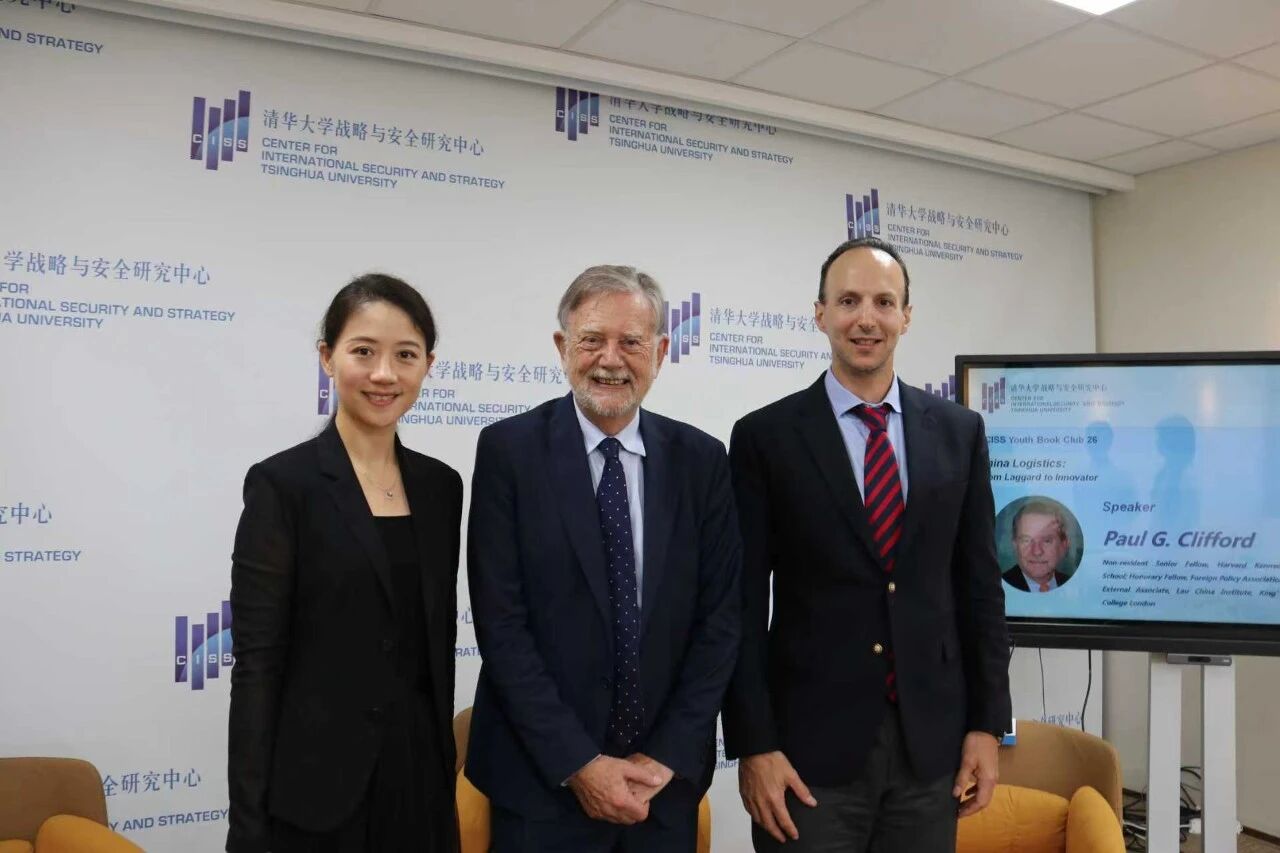On September 12, 2025, the CISS Youth program of Tsinghua University’s Center for International Security and Strategy (CISS) successfully held its 26th Book Club session. The event featured Dr. Paul G. Clifford, Nonresident Senior Fellow at Harvard Kennedy School, Honorary Fellow at the Foreign Policy Association, and Visiting Research Fellow at King’s China Institute, King’s College London, who delivered a keynote speech and engaged in in-depth discussion on the theme “China’s Modern Logistics: Breakthrough Development.”
The session also welcomed Vasilis Trigkas, Visiting Assistant Professor at Schwarzman College, as the discussant, and was moderated by Shi Yan, Fellow at CISS. Nearly forty students from Tsinghua University, Peking University, China Foreign Affairs University, and Beijing Foreign Studies University participated in the dialogue.
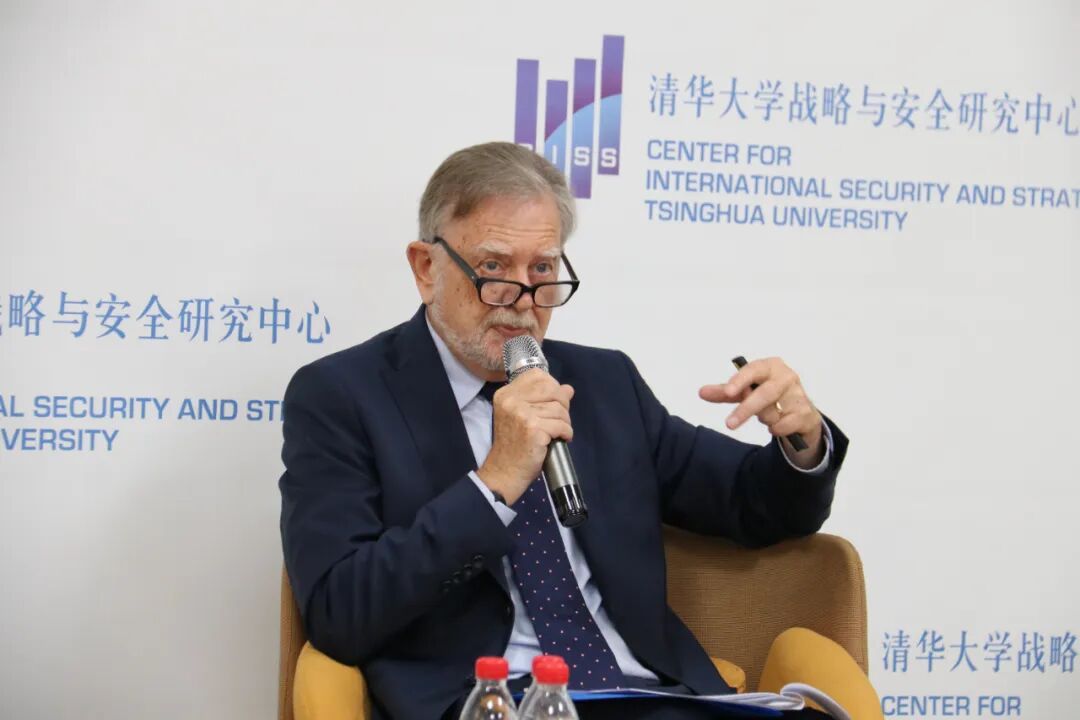
In his lecture, Dr. Clifford provided a comprehensive account of the evolution of China’s modern logistics sector and its profound implications, moving from a macro to a micro perspective in a systematic manner. He began by defining the concept of “logistics” and examining the major challenges that characterized the early stages of the industry’s development in China, such as fragmentation, limited scale, low outsourcing willingness, intense competition, weak profitability, and high asset intensity.
Dr. Clifford then highlighted the multiple benefits of developing a strong logistics sector. Efficient logistics, he noted, not only enhances economic efficiency and productivity and contributes to a “better GDP,” but also supports China’s green transition and facilitates the global circulation of goods. Furthermore, he emphasized that a robust logistics system strengthens national economic integration, promotes broad-based local development, improves social welfare, and helps narrow the wealth gap.
Dr. Clifford also examined the crucial role of government in China’s logistics transformation. He argued that the state’s focus on planning and investment, policy coordination, professionalization, technology deployment, and the pursuit of “green dividends” has been a decisive factor in the sector’s breakthrough development. To illustrate China’s success more concretely, Dr. Clifford analyzed two case studies: the state-owned enterprise Sinotrans and the private company Cainiao. He explained how Sinotrans revitalized itself through restructuring and strategic adjustments, while Cainiao distinguished itself through its innovative business model and technological capabilities. Together, these examples demonstrated the diverse contributions of both state-owned and private enterprises to China’s logistics growth.
Looking ahead, Dr. Clifford projected an increasingly global role for China’s logistics industry. Supported by the Belt and Road Initiative, overland corridors, and port investments, China’s logistics network is becoming deeply interconnected with global markets, forming an indispensable component of the world economy.
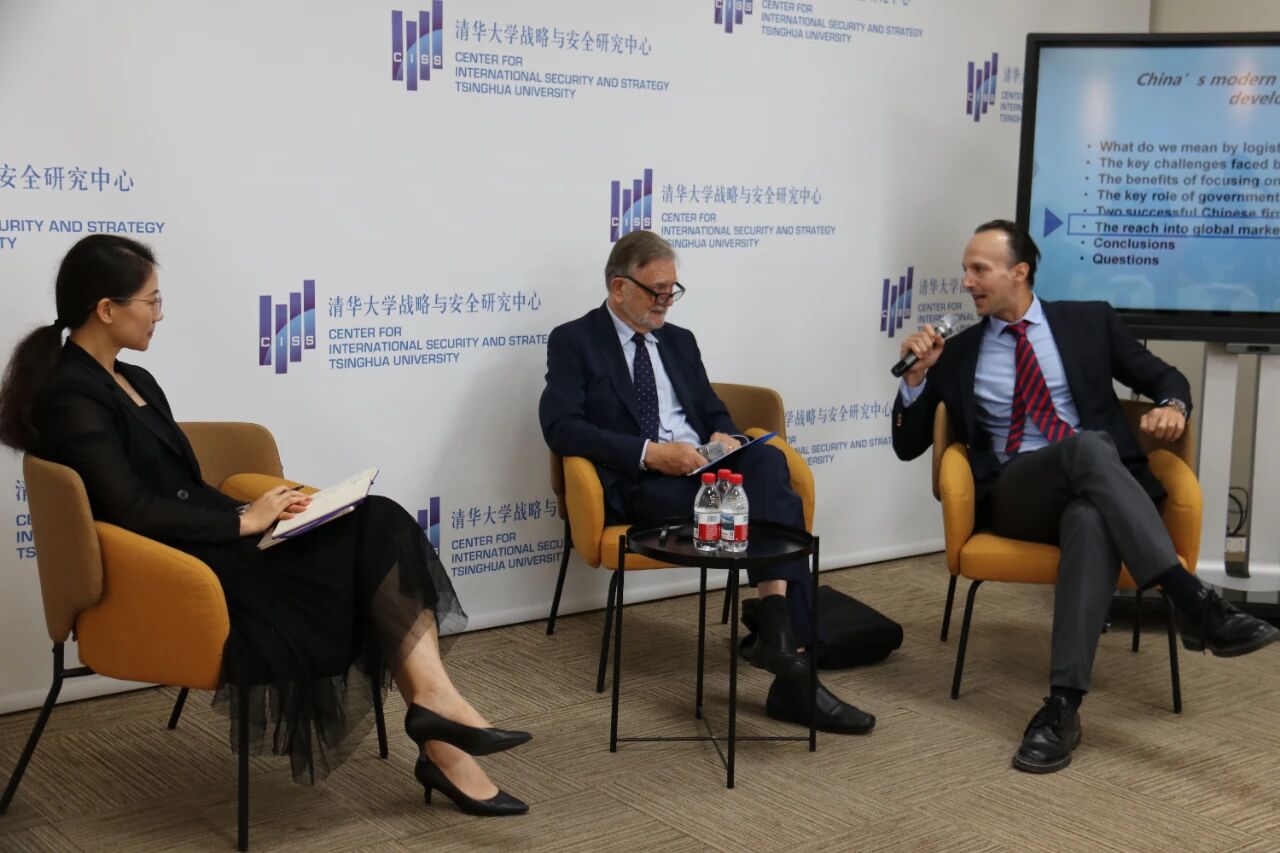
Following Dr. Clifford’s presentation, Shi Yan and Vasilis Trigkas engaged him in a dialogue that bridged academic research and policy practice. Their exchange enriched the discussion by connecting theoretical insights with practical implications.
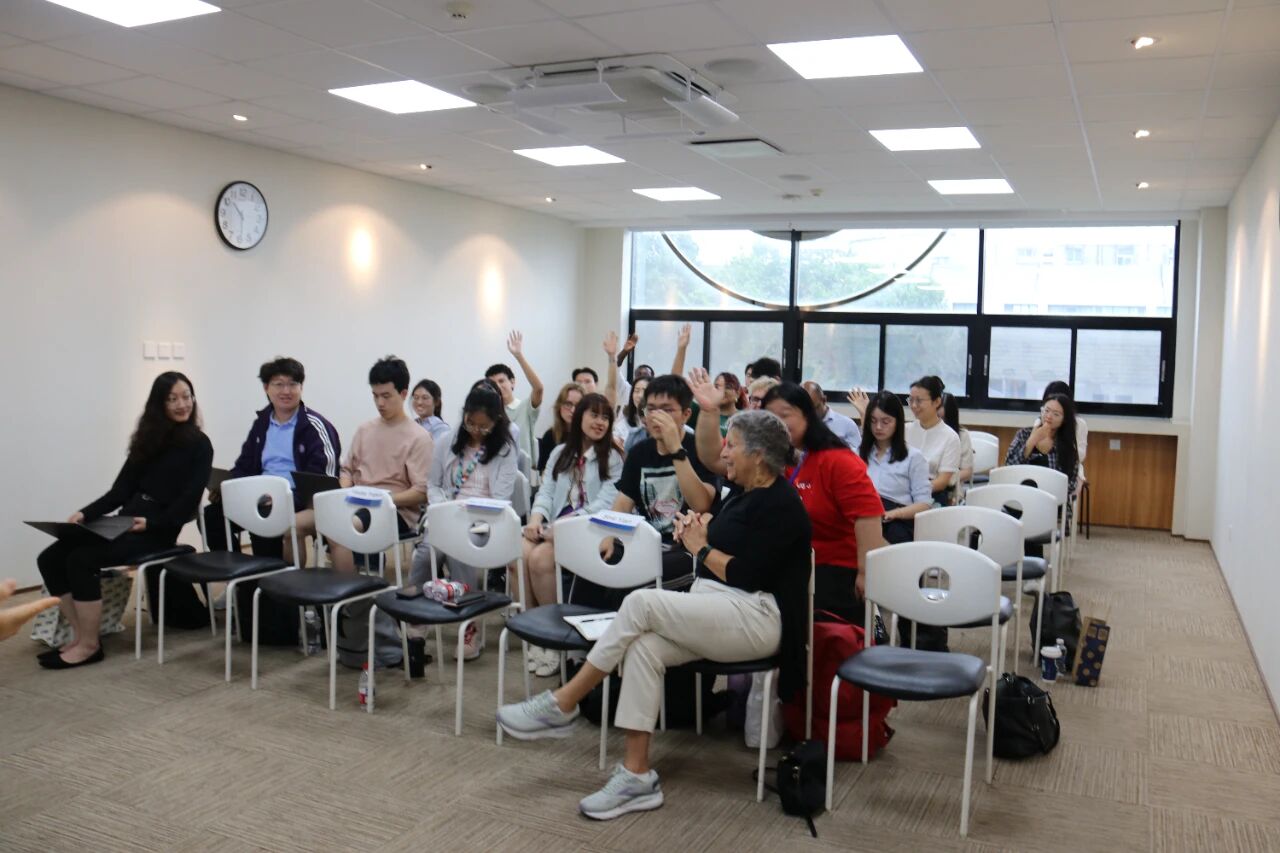
The lecture sparked enthusiastic discussion and active questioning from the audience. During the Q&A session, students from China, Liberia, the Philippines, and other countries engaged Dr. Clifford on issues such as environmental sustainability, innovative logistics models, and the relationship between logistics systems and economic security. Dr. Clifford responded thoughtfully, drawing on both macro-level policy perspectives and industry practice, which enhanced the academic and practical value of the session.
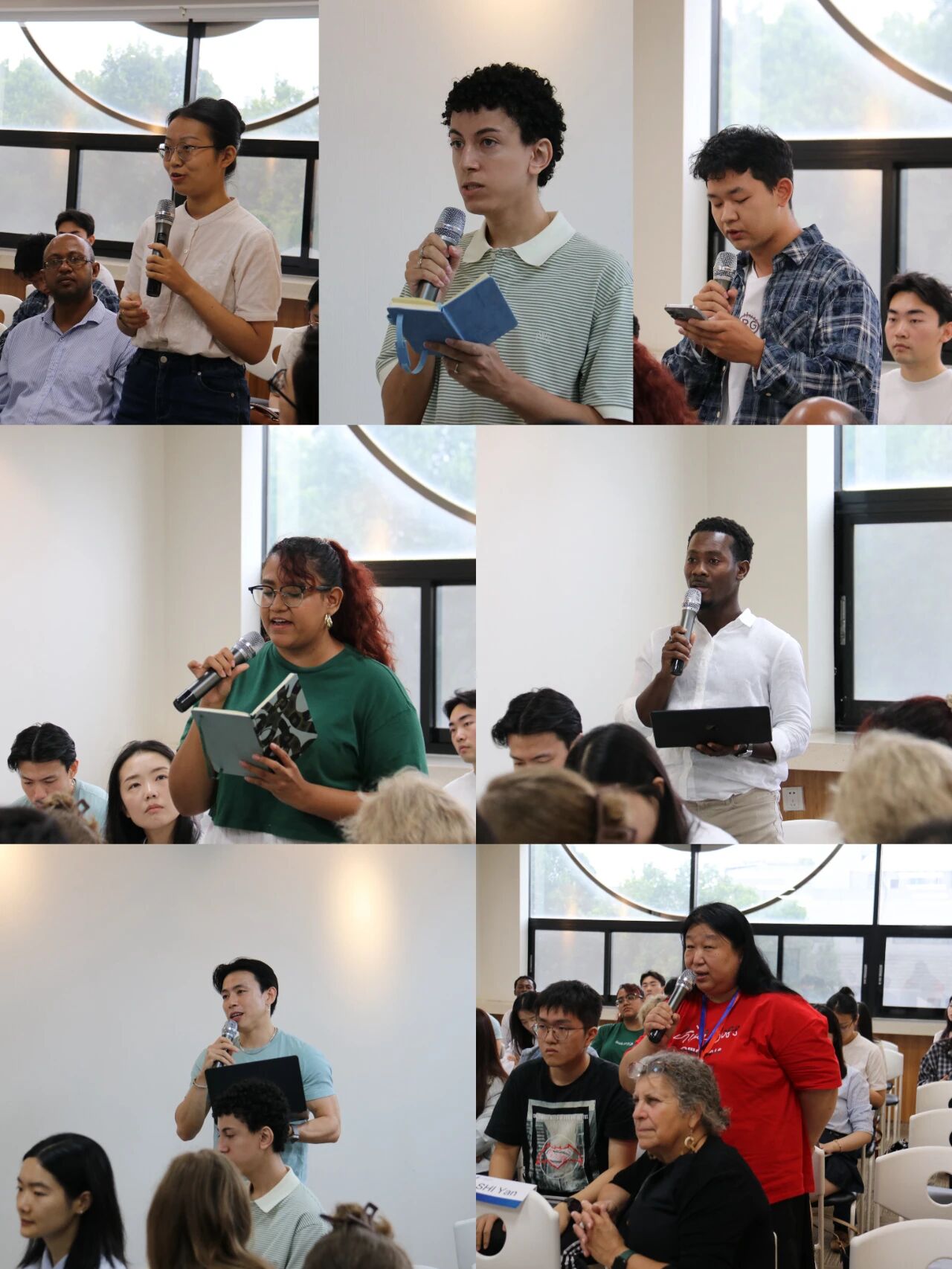
The event concluded with warm applause. Participants widely agreed that the book club offered not only a systematic understanding of the leapfrog development of China’s modern logistics sector, but also deeper insights into the wisdom of market-driven innovation in the broader process of Chinese modernization. The session reaffirmed CISS Youth’s mission of fostering in-depth interdisciplinary exchange and provided young scholars with a valuable platform for dialogue with world-class experts.
